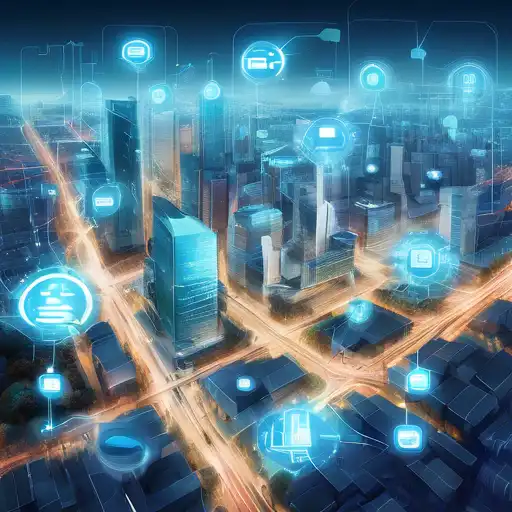Introduction to IoT in Smart Cities
The Internet of Things (IoT) is revolutionizing the way cities operate, making them smarter, more efficient, and more sustainable. By connecting devices, sensors, and infrastructure, IoT enables real-time data collection and analysis, leading to improved decision-making and enhanced quality of life for residents.
Key Benefits of IoT in Smart Cities
IoT technology offers numerous benefits for smart cities, including:
- Improved traffic management through real-time monitoring and adaptive signal control
- Enhanced public safety with smart surveillance and emergency response systems
- Energy efficiency via smart grids and intelligent lighting solutions
- Waste management optimization through sensor-equipped bins and collection routes
Challenges and Solutions
Despite its potential, the implementation of IoT in smart cities faces several challenges, such as data privacy concerns, high initial costs, and the need for robust cybersecurity measures. However, solutions like decentralized data processing and public-private partnerships can help overcome these obstacles.
Future Prospects
The future of IoT in smart cities looks promising, with advancements in AI and machine learning further enhancing its capabilities. As cities continue to grow, IoT will play a pivotal role in ensuring sustainable urban development and improving the overall well-being of citizens.
Conclusion
IoT is at the heart of the smart city revolution, offering innovative solutions to urban challenges. By embracing this technology, cities can become more livable, resilient, and future-ready. For more insights on digital transformation, explore our technology section.
